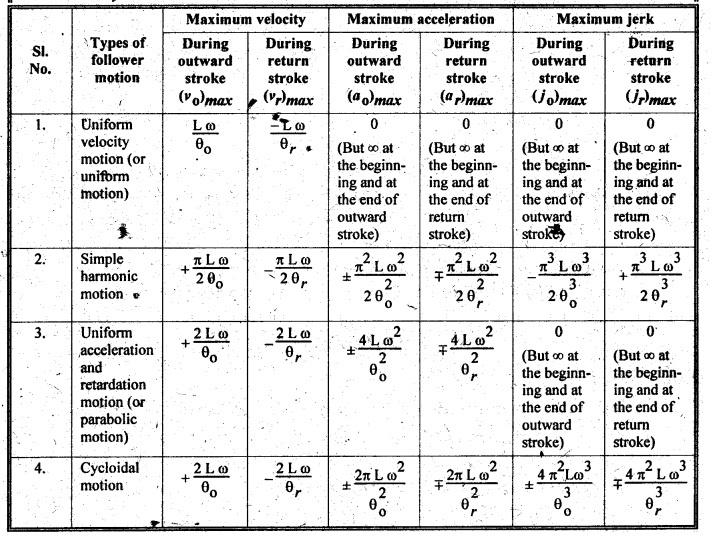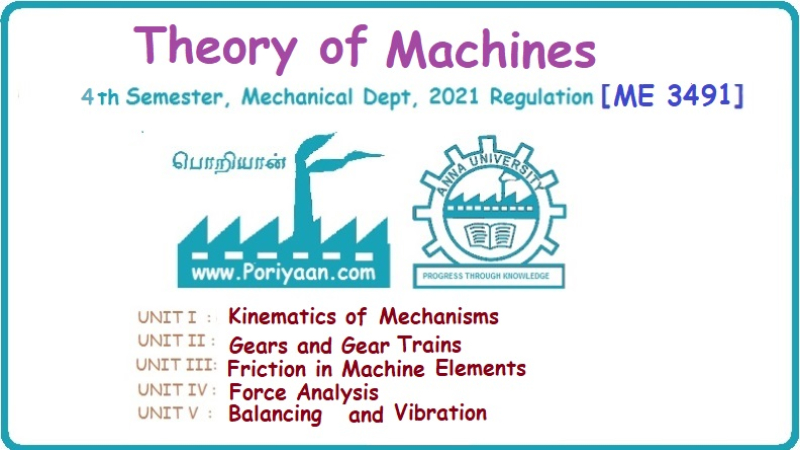Theory of Machines: Unit I: Kinematics of Mechanisms
review and summary
Kinematics of Mechanisms - Theory of Machines
A cam is a rotating mechanical member used for transmitting desired motion to a follower by direct contact.
REVIEW AND SUMMARY
• A cam is a rotating
mechanical member used for transmitting desired motion to a follower by direct
contact.
• The cams can be
classified according to their shapes as
1. Radial (or disc or
plate) cams,
2. Wedge (or flat)
cams,
3. Cylindrical (or
barrel) cams,
4. Conical cams,
5. Globoidal cams, and
6. End (or face) cams.
• Classification of
followers:
I. According to the
follower shape:
1. Knife-edge follower
2. Roller follower
3. Flat-faced (or
mushroom) follower
4. Spherical-faced
follower
II. According to the
motion of the follower:
1. Reciprocating (or
translating) follower
2. Oscillating (or
rotating) follower
III. According to the
path of motion of the follower:
1. Radial follower
2. Offset follower
• The various terms used
in radial cams are presented under the section radial cam nomenclature'.
• The
displacement diagram is one in which the abscissa represents the angular
displacement of cam and the ordinate represents the corresponding displacement
of the follower from its initial position.
• The most common
follower motions, that are used in the design of cams, are:
1. Uniform velocity
motion (or uniform motion)
2. Simple harmonic
motion (SHM)
3. Uniform
acceleration and retardation motion (or parabolic motion)
4. Cycloidal motion

• The cycloidal motion
provides the best possible cam follower for high speed operations. Simple
harmonic motion can be adopted for low speed operations.
• The cams with
specified contours are used to avoid difficult in manufacturing and to reduce
the cost of production.
• The two types of
specified contours are:
1. Tangent cams, and
2. Circular arc cams.
• When the flanks of the
cam are straight and tangential to the base circle and nose circle, then the
cam is known as tangent cam.
•
When
the flanks of the cam connecting the base circle and the nose circle are of convex
circular arcs, then the cam is known as circular arc cam.
Theory of Machines: Unit I: Kinematics of Mechanisms : Tag: : Kinematics of Mechanisms - Theory of Machines - review and summary
Related Topics
Related Subjects
Theory of Machines
ME3491 4th semester Mechanical Dept | 2021 Regulation | 4th Semester Mechanical Dept 2021 Regulation
